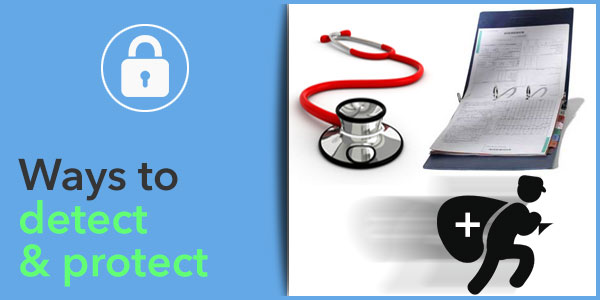At a time when credit card identity thefts are making new headlines, scammers have ventured into a new area: health insurance industry. As per a survey, around 1.8 million people faced financial problems due to medical thefts in 2013. Recently, 4.5 million medical records were hacked from Community Health Systems. Incidentally, Community Health Systems manages 206 hospitals in 29 states amongst the country. Identity-thieves stole every kind of information – birth dates, contact details, names and SSN.
Medical identity-thefts are worse than credit card scams. Apart from the credit damage and hours of harassment, you need to deal with wrong information on your medical records. Worse, you may also endanger your life.
Why hackers are targeting health care industry
First of all, it is easier to target the health care industry especially after the Affordable Care Act, popularly known as Obamacare came into effect. The move to electronic records have made it easier to hack medical information.
Secondly, the data networks are not as secured as that of the financial sectors . This is why medical information is comparatively easier to be hacked. So, it can be assumed that medical identity thefts will only increase before November 2014 when open enrollment for Qualified Health Plan (https://www.healthcare.gov/glossary/open-enrollment-period/) will begin.
Thirdly, stolen medical ids have a great demand in the black market. In fact, complete medical information can fetch up to $50 in the black market. If there is no insurance or medical information, then the rate drops to $10.
Usually, medical identity theft occurs on a mass scale. Sometimes, thousands of identities are hacked at the same time. Medical ids are used to get prescription drugs, costly healthcare equipments, commit financial scams.
5 Ways to keep your medical records safe and secured
Most people come to know about medical identity thefts when it is too late. This is mainly because they hardly check their medical records. While people make it a point to review their credit reports and statements, they tend to overlook the EOB issued by the health insurer after the doctor's appointment.
Lots of instances are there when people discover medical frauds after receiving a huge bill. Some even don't check the bills sent by insurance companies. By the time people sense something is fishy, their insurance policies have already been used to buy prescription drugs and medical equipments.
The consequences of medical frauds are really very costly. According to the Ponemon Institute, around 36% of victims had to pay in average $19,000 to resolve the issue. Their medical and credit records were also compromised.
Here are the 5 ways to keep your medical records safe and protect your identity.
- 1. Review your credit report and medical records periodically: Almost everyone knows that you can get a copy of your credit report without any cost from AnnualCreditReport.com. You can get a hint of medical identity theft from your credit report wherein delinquent medical bills will be reported. Other than that, you must also check your medical record soon after a medical procedure or consulting a new doctor.
- 2. Don't share your SSN with health care provider: Sometimes healthcare providers ask for your SSN. Usually, they don't need this number. So, you should avoid revealing this number and other confidential information to the healthcare provider.
- 3. Shred papers containing vital information: So your files and folders are filled with lots of financial papers. You don't need most of the papers and as such have decided to discard them once for all. Make sure you shred the papers into bits and pieces before throwing them out. Besides, never use the same password in all the platforms.|
- 4. Don't be over friendly with solicitors: Just because an insurance agent knocks at your door and asks for vital information, you shouldn't start blurting out what you know. Never open the links in suspicious emails. If you get a call from an insurance agent, try to avoid discussions on personal matters.
- 5. Go through the Explanation of Benefits: The sooner you go through the Explanation of Benefits (EOB) provided by your insurance provider, the better. You may not be able to read it quickly, but at least this would kelp you avoid future troubles. Ask your insurance provider to send the EOB preferably via email as it would be easier to not lose amongst several mails.
Finally, if you're the latest victim of medical identity thieves, then don't lose all your hopes fast. Read the letter sent by your health care provider very minutely. Follow the steps mentioned in the letter. Take advantage of all the free services you can get.









